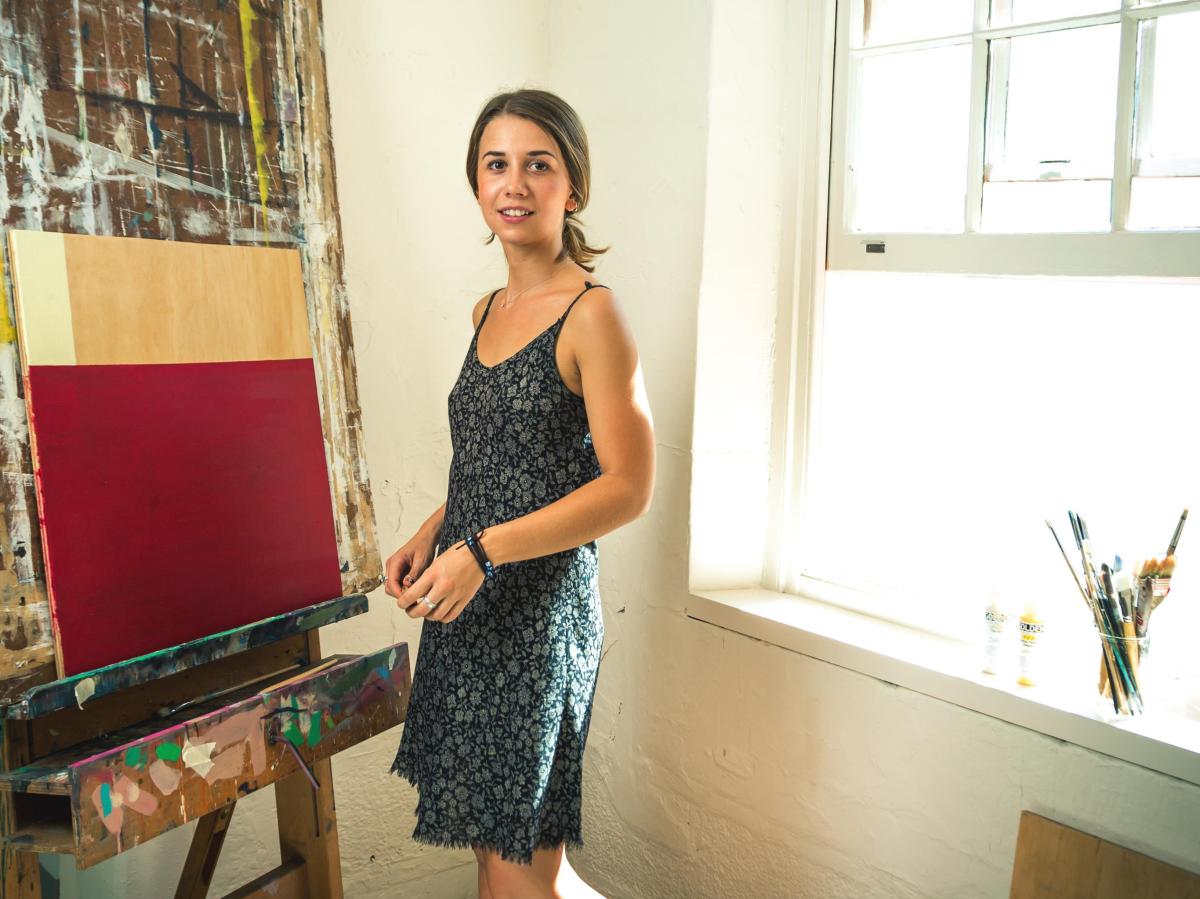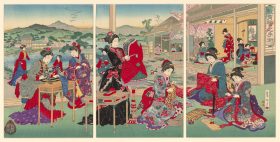A National Art School painting student (Image: Christopher Phillips)
The National Art School’s Winter School short courses promise a week of engaging and creative learning experiences.
Dr Ella Dreyfus, Head of Public Programs at the National Art School says that the Winter School is a highlight of the School’s Public Program’s calendar and participants really treasure the five days the program offers to practice their art and hone their skills.
‘We run two intensives, one in the summer and one in winter. So, it’s a really nice time for people to take a week out of their lives and just focus on their own art-making,’ she said.
The Winter School functions like a retreat in the middle of the city, with its secluded location set on a historic site.
‘It’s a bit like a medieval village because it’s enclosed by high stone walls and inside you are surrounded by beautiful historical buildings.
‘Once you are in the studio practicing and learning, you tend to forget yourself and get swept up in the creative atmosphere,’ said Dreyfus.
Studios are open to people who want to enrol in any one of the specialist courses in Ceramics, Drawing, Painting, Photography, Printmaking and Sculpture.
‘Drawing and painting are generally the most popular courses at National Art School, so we’ve got quite a good range for people to choose from,’ said Dreyfus.
Each course also provides instruction at different levels for beginners, intermediate and advanced students. Dreyfus credits the staff who are highly qualified at managing students of varying skill levels.
‘The great thing about these short courses is that the lecturers are also generally teaching in the Bachelors, Honours and Masters of Fine Arts degree programs,’ said Dreyfus.
She added that the teachers are very adept at discerning what level people are at, and skilfully combine group demonstrations with one-to-one attention. There are also specialist classes such as the Painting Master Class, which Dreyfus explains is for experienced students who are have their own studios but want to work on a one-to-one basis with a mentor.
‘They’ll bring in their own paintings and get started on their work and the teacher moves around and gives group discussions and a lot of individual time.
‘And at the other end of the spectrum there is Starting Drawing for those who are new to art, which involves a lot of group instruction, where students work on the same projects and learn how to do particular styles of rendering and many other techniques using a range of different materials,’ she said.
Each group has its own flavour, depending on what they want to achieve collectively. This agenda is set out right at the start of the course, with the hub of activity allowing people to develop their skills and even go through a whole cycle of change.
‘I’ve observed students in the five-day intensives who are very nervous and excited on the first day and then find it hard on the second and third day and then suddenly on the fourth day they’re in the zone and never want it to end, but then on Friday it all has to comes to a half.
‘People often say on the fifth day, “Oh! couldn’t I just come back next week?” and this is how we want it to be – for people to get a full experience,’ she said.
A regular day at one of these short courses typically starts at 9:30am and finishes at 4:30pm with an hour’s break in the middle. Dreyfus said she always offers artists’ and curators’ talks at lunchtime.
‘We also have a social event on the Thursday night, which is like a pop-up bar. So, people can stay back after class when they are nearly at the end of their time here.’
The event is popular because it gives everyone a chance to meet more people, wind down and socialise.
‘Another thing we always do at the end of the intensives is on Friday afternoon, in the final hour of the program, we have an open studio hour. Every studio sets themselves up and displays what they’ve created during the week,’ she said.
‘It’s an opportunity for everyone to see what was done in the other classes and is open to the public, so students can invite family members, friends and teachers to this showcase event.’
Dreyfus said that the short course programs are also a good way to build community networks and get a taste of the National Art School education.
‘A lot of people who attend our short courses, intensives or evening classes, often make the transition to apply for full-time degree courses. The short courses are an excellent pathway to full-time study,’ she said.
The Winter School runs from 29 June – 3 July (Mon – Fri).
Early bird discount fee ends 25 May. For further information about the courses offered, read here.





